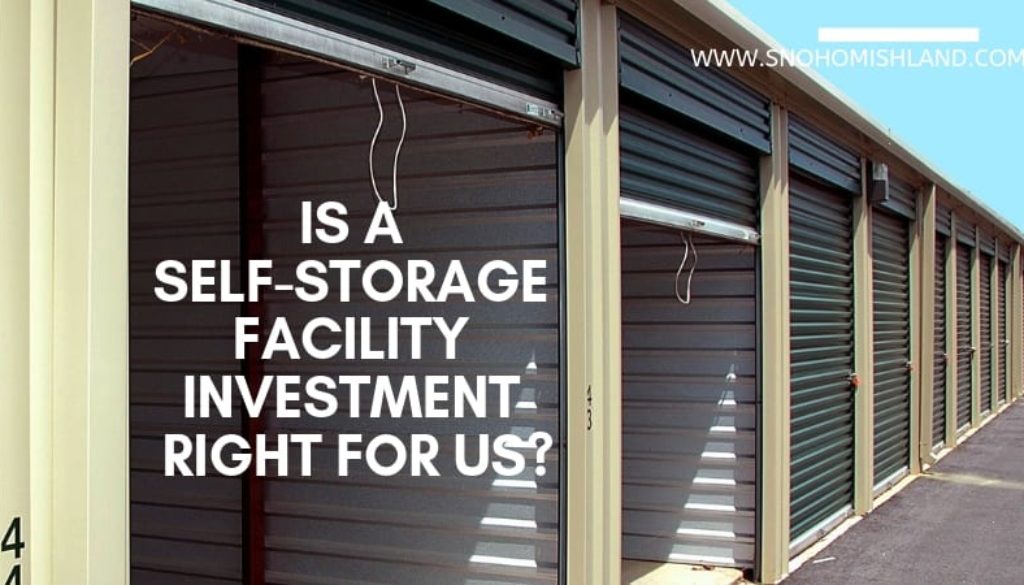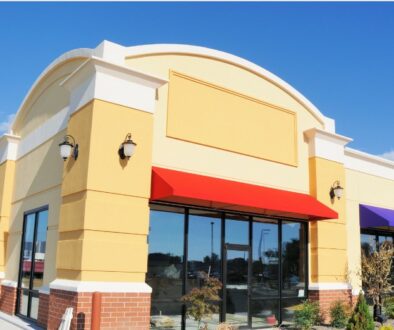Should We Jump in the Self-Storage Bandwagon?
It seems every time I drive through Snohomish County a new self-storage facility is going up. First the one on nine, than the ones on Smokey point Boulevard, etc. They are everywhere so they must be making money, right? I spoke to a lot of investors that are considering the self-storage route. However, most people don’t know a lot about self-storage but it can be one of the best real estate investments that a small, private investor can make. It may be even better than a multi-family property.
Of course, there are pros and cons to any investment so let’s break this down to find out if self-storage investment is right for you.
Popularity
From 2008 to 2018, self-storage construction spending tripled reaching nearly $5 billion. Is there any downside to this? Well, investors demand is calm zinc storage facility prices to go higher resulting in lower returns and as a result, this type of investing is more challenging to navigate, although it’s not impossible.
Lower NOI
Having a lower net operating income is something to consider. Let’s take an example from bigger pockets.com
Let’s say a 10×10 unit rents for $100 per month. After applying that 35% to 40% expense ratio, you’ll have about $60 to $65 in NOI. Compare that to an apartment unit that rents for $1,000 per month. After a 50% expense ratio, an owner would end up with $500 in NOI, a drastic difference compared to a self storage unit! The returns for both asset classes can be similar, but the cash-flow dollar amount can be vastly different. Most investors don’t consider this difference when jumping into self storage.
With lower operating costs and alternative financing options, this might be a good idea.
Fragmented ownership
About three-quarters of all self-storage owners own just one or two facilities. The other quarter owners are institutional investors who have of course three or more. This could present an opportunity to acquire facilities from local owners who are prepared to sell. This means that everything is already done for you and all you have to do is step in and start managing.
Month-to-month
Most of these self-storage units require month-to-month rental agreements and not a long-term lease. If the rents increase in a certain market you can raise the rents quite easily to capture more potential revenue. Most won’t move out due to a nominal increase in rent because most of these places are pretty competitive.
SBA Lending
The Small Business Administration is the only real estate asset that will loan on self-storage. Like an FHA where buyers put down about 3.5%, this type of loan can purchase self-storage with a 10% down payment. Other types of loans require up to 30% down payment but an SBA loan can provide funds to cover renovation costs or other upfront capital needs.
Lower expense ratio
Self-storage facilities have about a 35% to 40% expense ratio, the rest is net operating income. This is considerably lower than a lot of assets including multifamily because self-storage has fewer unexpected expenses. You really just renting a space and potentially a heater, so there’s very little to go wrong on a regular basis.
Impersonal
because you are not renting space for people but for things if tenant’s default on their payment their items can be auctioned, which is not as costly as an eviction.
If you’re considering self-storage as a good real estate investment give me a call today. I have some opportunities that might be attractive to you and we can discuss your needs and future income goals.




